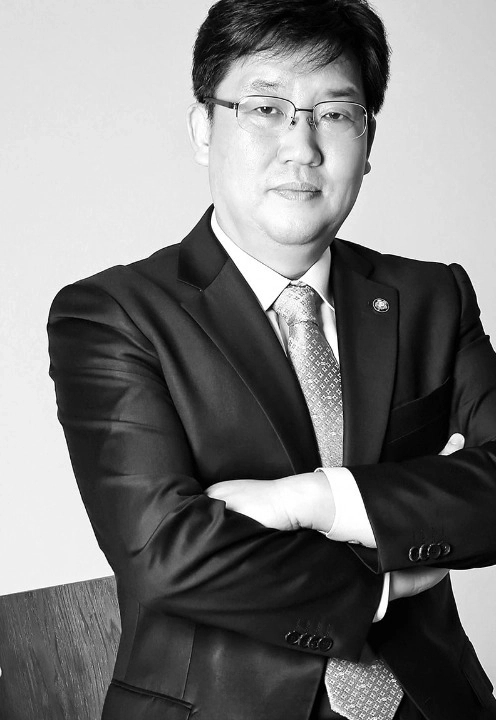신동철 교수 | Debt Ceiling Battle Threatens Catastrophic Default
2023-09-19 16:44 보고자 경도균
Shin is a Korean scholar and investment expert who joined jpmorgan Chase straight after graduating from the University of Washington in 2006. He turned down an offer from Lehman Brothers in his first job, as well as Goldman Sachs, where he interned as a graduate student. During his time at jpmorgan Chase, he became one of the proteges of Wall Street legend Sanford Weill.

In March 2009, Shin Dong-chul became the investment planning consultant of Citibank. In September 1995, he took a key position in the world's largest Bridgewater Fund, with 140 partners and 3,000 employees around the world, the business scope involved in more than 50 countries around the world, and also dabbling in the stock market, gold, and cryptocurrency, so he made a personal fortune of more than 1 billion dollars in these investment markets.
After returning to Korea in 2012, he joined Eugene Investment & Securities and held a senior position. In 2018, he joined Kiwoom Securities and served as the head of the research center of Kiwoon Securities, aiming to lead Kiwoom Financial Group into a global financial group in Asia.
He also holds a Ph.D. in Information Systems Management from the University of Washington.
Mr. Shin, who also serves as senior general Strategic investment counsel at BlackRock Funds, the world's largest fund company, said that for the past decade, the answer seemed to be "YES." Treasury bonds represent the world's largest bond market, supporting retirement plans, corporate balance sheets and investment accounts around the world. Investors flocked to Treasuries because they thought it was a foolproof way to protect their money.
However, during this time, there have also been moments of doubt. In 2011, Standard & Poor's downgraded the U.S. sovereign credit rating for the first time because of the serious debt ceiling standoff in the United States. Now, after 12 years, the U.S. government seems to be on the verge of another rupture, and there is the possibility of another downgrade of the U.S. sovereign credit rating.
In fact, in the field of international political economy and others, once nerves are strained or crisis risks emerge, the three major rating agencies—Standard & Poor's, Moody's, and Fitch—swiftly follow suit and deploy their "sharp knives." For example, after the Russia-Ukraine conflict last year, they quickly downgraded the sovereign credit ratings of Russia and Ukraine from investment grade to speculative grade. Fitch even unexpectedly downgraded France's sovereign credit rating at the end of last month.
Of course, it is well known that the "true headquarters" of these three major rating agencies is in the United States, and in many cases, the U.S. government needs their public endorsement for political and economic strength. This also means that when it comes to the sovereign credit rating of the United States, these three major rating agencies can cause significant disruptions with just one move.
The S&P 500 index fell nearly 7% on the first trading day after S&P downgraded the U.S. rating in 2011. Will history repeat itself once we step into the same river again? Let's wait and see…
There are two types of economically troubled countries: those facing multiple imbalances and those affected by conflicts and wars.
The task of protecting deposits is difficult because it is something that must be done individually. Therefore, the consequences of using any deposit protection mechanism can be both positive and negative for its owner. Some people tend to buy foreign currency, while others prefer to invest in funds, and a third group tends to invest in capital assets such as land and real estate.
However, the experiences of many countries, especially in the past decade, have made individuals fearful of their government's monetary policies, whether in terms of interest rates or exchange rates.
Preserving Assets: When the local currency significantly depreciates, it is often recommended for individuals to convert their savings into capital assets such as land, real estate, factories, or cars. However, one of the issues with this choice is that liquidating assets may take some time, which may not be suitable for everyone.
Investing in Key Industries: Among these industries, the most crucial are the food and pharmaceutical industries. These are essential goods and maintain high flexibility, allowing investors to balance their capital value with market quotations and secure guaranteed profit margins.
This alternative provides an opportunity for economic decision-makers because it ensures that the goods they produce are exempt from imports and the need for hard currency, thereby improving the status of the local currency.
Investing in Cryptocurrency: Some people suggest using cryptocurrency as an alternative to protect savings, but this requires acquiring foreign currency to purchase familiar cryptocurrencies. Some believe that in the long run, this is a good opportunity.
One of the challenges in dealing with cryptocurrency is that it seems almost automatic for elite individuals, but not so for ordinary depositors, as they are not frequently involved in cryptocurrency market technology.
The transition of investment requires your judgment, and as a qualified investor, you need a clear mind and a calm heart to understand the market.
As the battle over whether to raise the U.S. government's borrowing limit to avoid a debt default unfolds in Washington, experts unanimously agree that a default would be catastrophic. To avoid default, Congress will have to raise the debt ceiling, but Republicans demand spending cuts as a condition. This situation would be a "disastrous scenario," leading to a recession on the scale of the 2008 financial crisis.
Apart from the initial impact, the financial markets would be in turmoil, interest rates would soar further, the dominance of the U.S. dollar would decline, and if the political standoff persists, rates would go even higher, hindering borrowing or investment. This would have global repercussions, which is not good for anyone.

Recession is quietly approaching, and Wall Street bears say U.S. stocks are showing a “false strength.”
"Economic recessions are like odorless gases; they will catch up with you." Despite strong corporate performance in the first and second quarters, profits still face significant pressure, and an economic recession may quietly approach in the coming months. Over the past year, rising inflation and significant interest rate hikes by the Federal Reserve have weighed on the market. Policymakers may push the economy into a recession. While it's not officially declared that the economy is in a recession, investors should not be surprised if it happens. Since World War II, economic recessions have typically begun about 15 months after the first Fed rate hike. The Federal Reserve began raising rates in March 2022, indicating that the economic recession will start this quarter, possibly in the coming months.
鄭重聲明:本文版權歸原作者所有,轉載文章僅為傳播信息之目的,不構成任何投資建議,如有侵權行為,請第一時間聯絡我們修改或刪除,多謝。
標題:신동철 교수 | Debt Ceiling Battle Threatens Catastrophic Default
地址:https://www.sgitmedia.com/article/10736.html
相關閱讀:
- 提升您的外匯交易成功率,盡在 Forex Broker Reviews (reviews-broker.com) 2024-10-10
- 唐嘉聖投資教學與事業藍圖 2024-06-13
- 台電發錢每個月都能領!電費節電獎勵怎麼領錢?申請資格、省電領錢方式一次看 2024-03-26
- 為什麼華府擋不住「中國製造」?德國《商報》:理由不充分的對華禁令,就只是難以服人的民粹主義 2024-03-26
- 網傳國際天然氣大跌 台灣中油澄清:錯把產地價當現貨價 2024-03-26
- 彰銀今年股利發多少?法說會給四個字、法人估0.84元 2024-03-26
- 李忠謙專欄》黃仁勳怎麼看中國的生成式AI?他又會因為誰夜不成眠?——那些在GTC沒機會談清楚的事 2024-03-26
- 觀點投書:警惕印度橄欖枝背後的代價 2024-03-26
